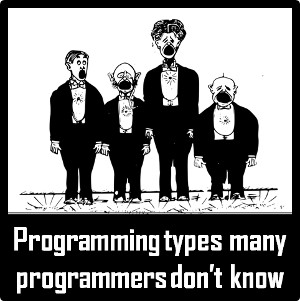The best frameworks for developing both for Android and iOS
The increasing competition in the programming and development sphere forces IT teams to reconsider their strategies. The so-called hybrid applications are taking the market by storm and it’s no longer enough to simply develop for one particular platform.
Developing hybrids is a flexible and lucrative solution that effectively allows the same code to be used across different platforms. But what are some of the best and most viable frameworks on the market right now? Let’s take a look at some of the options at your disposal when it comes to Android and iOS platforms.
Xamarin comes from a Microsoft-owned company dedicated towards the development of cross-platform applications. The purpose of Xamarin is simple – allow developers to create code that will easily be transferred across different platforms.
Xamarin offers full support for Android, iOS, Windows and Mac OS systems respectively. Developing a user interface without any platform-specific code ensures that Xamarin can easily convert it to a coding language that another platform will understand.Free frameworks that work correctly are hard to come by. Corona SDK promises to offer an all-in-one solution for hybrid development across computers, smartphones and TVs respectively. The platform was built around Lua, a lightweight programming language and source-code able to quickly and effectively process information.
This allows Corona SDK to swiftly convert code into different languages in real time, allowing for simultaneous development for Android and iOS devices. You can check out some of the demos and basic simulations available on Corona SDK’s website before committing your time and effort into it.Rho promises a native framework for development of Android, iOS and Windows Phone applications in the cloud. This means that there is virtually no need for any downloads or excess data to be transferred.
All you need to do is sign up with RhoMobile and start developing your code. It uses Zebra Technologies open-source framework which means you can modify it in any way you see fit in regards to your own project.Ionic is an MIT-funded online platform and framework for developing native Android and iOS applications. Seeing that the framework is free to use and comes with good funding, there is a plethora of plugins and ready-made code available for you to use.
Options such as Bluetooth, Fingerprint Scanning and similar utilitarian code are ready for use for anyone that might want to integrate it. It also comes with prepared icon packs for many popular buttons and options such as social media platforms and others. This makes Ionic perfect for starting developers and small teams since much of the resources on the framework are ready-made and don’t require additional work.As arguably the most popular hybrid framework on the market, PhoneGap has a lot to live up to. You can easily utilize a single code database to develop HTML, CSS
As one of the most popular choices in the corporate development sphere, TheAppBuilder is also unique in its interface. This framework allows for completely codeless development of applications, meaning that it was built with rapid-fire development in mind. Many of the standard application options come pre-built in TheAppBuilder, meaning that this framework is the perfect choice for teams that work under pressure and strict deadlines.
However, since most of the framework is built around fast turnaround times, it is also best to use it with that thinking in mind. Anything more complex than simple spreadsheet interfaces and easy-access UI might be too much for TheAppBuilder to handle.If you are looking for a framework that will support Java and JavaScript without any errors or slowdown, ExtJS is the right tool for you. This web-based framework allows for a plethora of options in regards to developing Android and iOS applications based on the same code.
As the official part of Sencha, ExtJS allows for backend use of data repositories that can be called on at any moment. This means that you and your team can easily integrate ExtJS into your databases and call up any resources you might have available without any upload or conversion processes. Sencha also provides ExtJS with unique UI elements that can be implemented into the final product, all while developing the same code for two distinct platforms.Lastly, React Native is an open-source framework developed by Facebook itself. This means that apps built in React Native are indistinguishable from Facebook and Instagram apps when code is concerned. However, this framework doesn’t rely on Objective-C or Java but on its own native code.
The building blocks of React Native allow for a simultaneous development for Android and iOS devices without any slowdown. As the name would suggest, real-time development is an integral part of React Native. Any changes to the code are immediately visualized in the preview segment of the framework. This allows for a smooth transition between testing and development phases of your programming efforts.
Being an IT expert and an app developer means that you will always have programs that you like and dislike. Choosing the right framework for your own application development efforts can be difficult.
The best thing to do is to create a sample code which you can insert into each framework for testing purposes. In the end the framework you choose is only the shell of your application. The real substance comes from your creativity, focus and willingness to make something new and exciting.

 Alaine
Alaine






